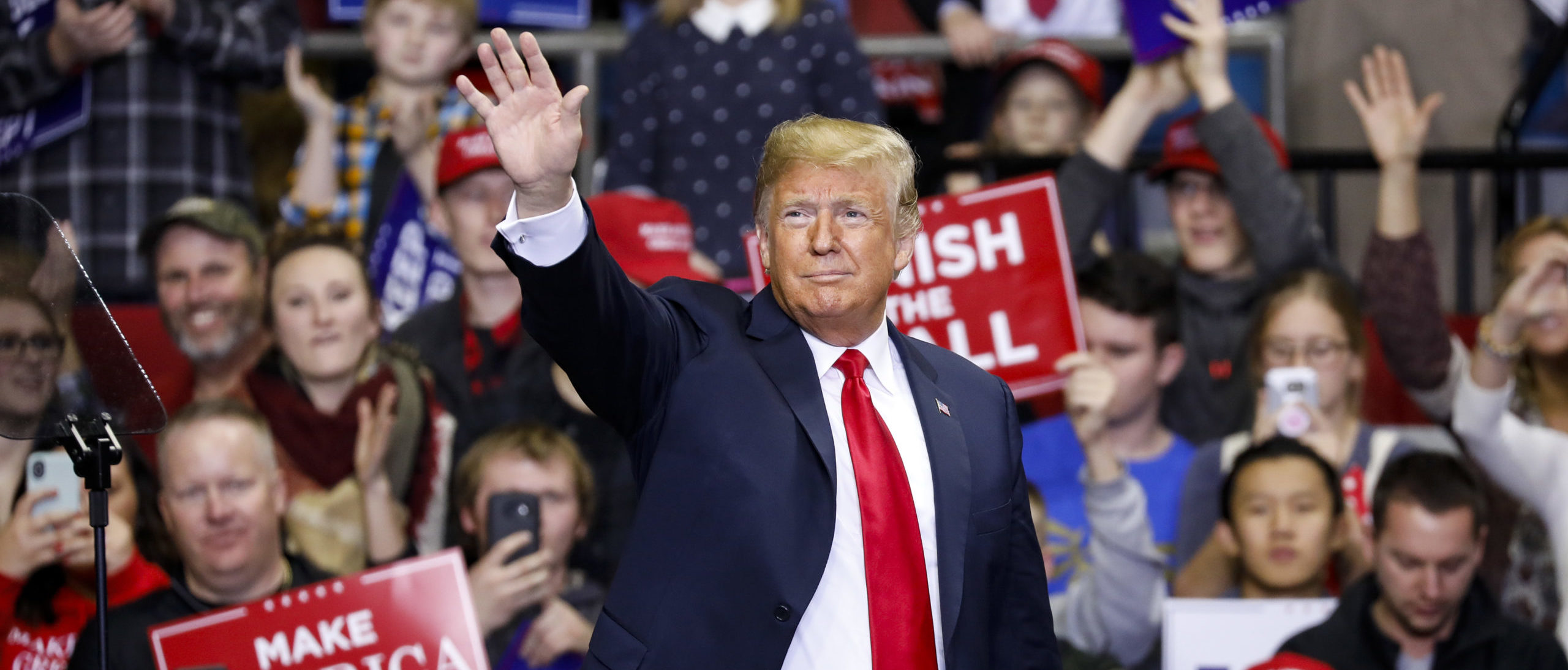
President Donald Trump championed a series of progressive causes during his time in office, signing executive orders and bills that targeted drug pricing, paid parental leave for workers and criminal justice reform.
Trump secured up to 12 weeks of paid parental leave for some federal workers when he signed the Defense Authorization Act Dec. 20, 2019. The law offers both maternity and paternity leave, but it does not offer paid time to care for sick relatives, according to Politifact. The legislation, which was scheduled to take effect Oct. 20, was praised as a way to enhance the quality of the federal workforce.
“This new benefit will likely improve the desirability of Federal employment, and likely increase the quality of Federal employees, leading to improved services for the general public,” the Office of Personnel Management said in an August statement, the Washington Post reported.
Rachel Greszler, a research fellow at the Heritage Foundation, wrote that paid parental leave would be yet another national entitlement program. But she also chided progressives who argue the bill does not go far enough.
“What President Trump proposed as a targeted, relatively limited paid leave program for new parents could quickly inflate to include paid sick, medical, and caregiver leave; more generous benefits; and longer periods of leave. Already, instead of applauding the President’s inclusion of a paid leave proposal in his budget, paid leave advocates have derided it as “amateurish, inadequate, insulting,” Greszler wrote.
The past four years, Trump battled big pharma in an attempt to lower drug prices. Then, over the summer, the president signed a series of executive orders targeting price transparency, which culminated in an order to offer Medicare recipients “favored nations” pricing. The Sept. 13 order put into motion an effort to reduce the cost of prescriptions to relatively match what other countries pay for the same drug.
“Americans pay more per capita for prescription drugs than residents of any other developed country in the world. It is unacceptable that Americans pay more for the exact same drugs, often made in the exact same places,” the order read.
US is usually first to have access to breakthrough treatments b/c we are willing to pay for them — unlike countries with socialist health care. Ironically, a Most Favored Nation policy would put us at the back of the line.https://t.co/VtNDCm7xXP
— Newt Gingrich (@newtgingrich) November 21, 2020
Trump took a swing at criminal justice reform with the First Step Act. The law allowed judges to, in some cases, ignore mandatory minimum sentences for certain offenses. So far, thousands of prisoners have been released due to the act, Politico reported. The prison population decreased by more than 5,000 the year after the First Step Act was signed, according to the Brennan Center for Justice. (OPINION: Prison Reform Is A Major Achievement For President Trump)
Vice-president-elect Kamala Harris, a Democratic California Senator at the time, helped pushed the bill through but also offered criticism. Harris tweeted that the bill did not go far enough to rectify a series of issues, including good-time credits and a failure to address the private prison business.
“To be clear, the FIRST STEP Act is very much just that — a first step,” she said. “It is a compromise of a compromise, and we ultimately need to make far greater reforms if we are to right the wrongs that exist in our criminal justice system.”
Trump signed an executive order Nov. 26, 2019 establishing a task force to address missing and murdered American Indians and Alaskan Natives. The task force was designed to ensure cooperation between federal and tribal governments.
The Urban Indian Health Institute reported 5,712 cases of missing or murdered Indigenous women and girls in 2016, but the DOJ data base only listed 116 cases, USA Today reported.
As the 1st President to formally recognize the issue of Missing & Murdered Native Americans, today, I was proud to sign Savanna’s Act & the Not Invisible Act. We have also provided $295 Million to support public safety & crime victims. Forgotten NO MORE! #OperationLadyJustice
— Donald J. Trump (@realDonaldTrump) October 11, 2020
The president also signed Savanna’s Act Nov. 11. The bipartisan bill, which was first introduced by Democratic North Dakota Sen. Heidi Heitkamp, requires law enforcement agencies to create protocols to address the murder of Native Americans. Additionally, the justice department must train agencies to provide technical assistance to properly update data on missing persons cases, USA Today reported.
“For far too long, the crisis of missing and murdered Native American women went unknown outside Indian Country,” Heitkamp told USA TODAY. “When I first introduced Savanna’s Act in 2017, I wrote this bill to take a critical first step to help address this crisis and help raise awareness about it by bringing these women out of the shadows and making them not invisible.”
This post originally appeared on and written by:
Adam Barnes
The Daily Caller 2020-11-25 23:32:00
